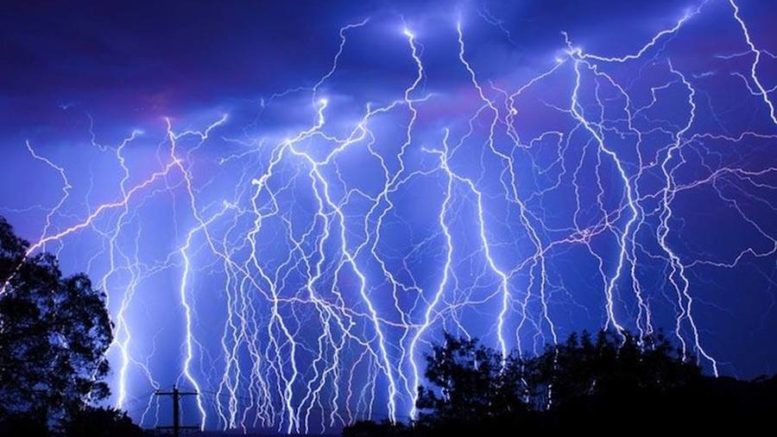Friends, here’s the fact. I don’t know the answer to that question. I have some ideas, but the one thing I can say for certain is that it’s too big a question. There are too many cases to consider, and so the answer is really going to vary. But, at least in the context of this short article, we can talk about paticular cases and what they might mean.
The elephant plugged into the room
For a long time, we really didn’t think about the energy efficiency of our computing devices. Oh sure we cared about battery life on our phones. Energy efficiency plays into that. But when it comes to the stuff we plug in, I think we had gotten out of the habit of really thinking about it. The period from about 1985-2005 saw massive improvements in energy efficiency, and at the same time the cost of electricity stayed pretty stable for most people. We just didn’t have to worry about it too much. Now all of a sudden, energy costs shot up. We’re thinking about it again. That’s not a bad thing, it’s just part of a cycle I guess.
It is worth pointing out again that today’s electronics are massively more efficient than their predecessors. A TV today uses far less energy than it did in the 20th century. The same is true of a computer. However, TVs also got bigger and computers got more powerful. A 25″ TV today uses practically no power, but who has a 25″ TV today? See what I mean? So while everything is more efficient, the actual energy used isn’t much lower than it once was.
Cloud storage vs local storage
We tend to think of cloud storage as being more efficient. Why? Because of scale. We run one computer and there’s only so much we can do. Cloud storage takes place in server farms where you can really put energy-saving into place. You can cover the roof with solar panels. You can use geothermal energy to heat and cool these spaces. These are very specialized buildings and they can be built to take advantage of every possible energy saving technique.
And so, apples to apples, I do think that storing stuff in the cloud should be more efficient. But of course it’s never really apples to apples. When you store stuff in the cloud you’re not connecting directly to a data center. There’s all the internet hardware in between. And although those data transfers only take a tiny amount of power, it does add up.
Where it really does make a big difference
It seems that the biggest difference comes in streaming. When you’re streaming, you’re not really just downloading one stream at a time. You’re downloading a lot. In the case of video, you’re downloading two or three versions of the same content so that if there’s a slowdown, you just drop down in quality for a minute.
Streaming audio really seems to be the worst culprit. Spotify seems to download not only the song you’re listening to but the beginning of several other songs, so that you can jump from song to song quickly. It’s all done in the service of the user experience, but the bottom line is the same. You could be downloading four or five times as much data as you think you are, and not using practically any of it.
Little things that make big changes
I’m not suggesting that you stop streaming altogether. It’s very convenient and it’s just the way we live life today. If you do have physical media, it’s probably hard to get to. In the case of movies, it can take so long to load the disc and then get through the terrifying threats at the beginning of every movie… it just might not be worth it. But there is a middle ground.
Rather than streaming content that you really like, download it. If you know you’re going to have a Star Wars marathon, download all the movies ahead of time onto your device if that’s possible. With streaming boxes it often isn’t, but with phones and tablets it’s quite common. Downloading once will save up to 3/4 of the energy as streaming.
The same is true with audio. If you’re hooked on a specific album, just download it. It will take up practically no space on your phone and it will be there instantly when you need it. The downloads happen very quickly too.
What to do with the money you save
It’s true, you won’t save much money this way, I’ll admit that. You’re making very small moves and although they add up, they might not seem worth it. But, you will save a little bit. This means, of course, you can spend more money by shopping at Solid Signal!





